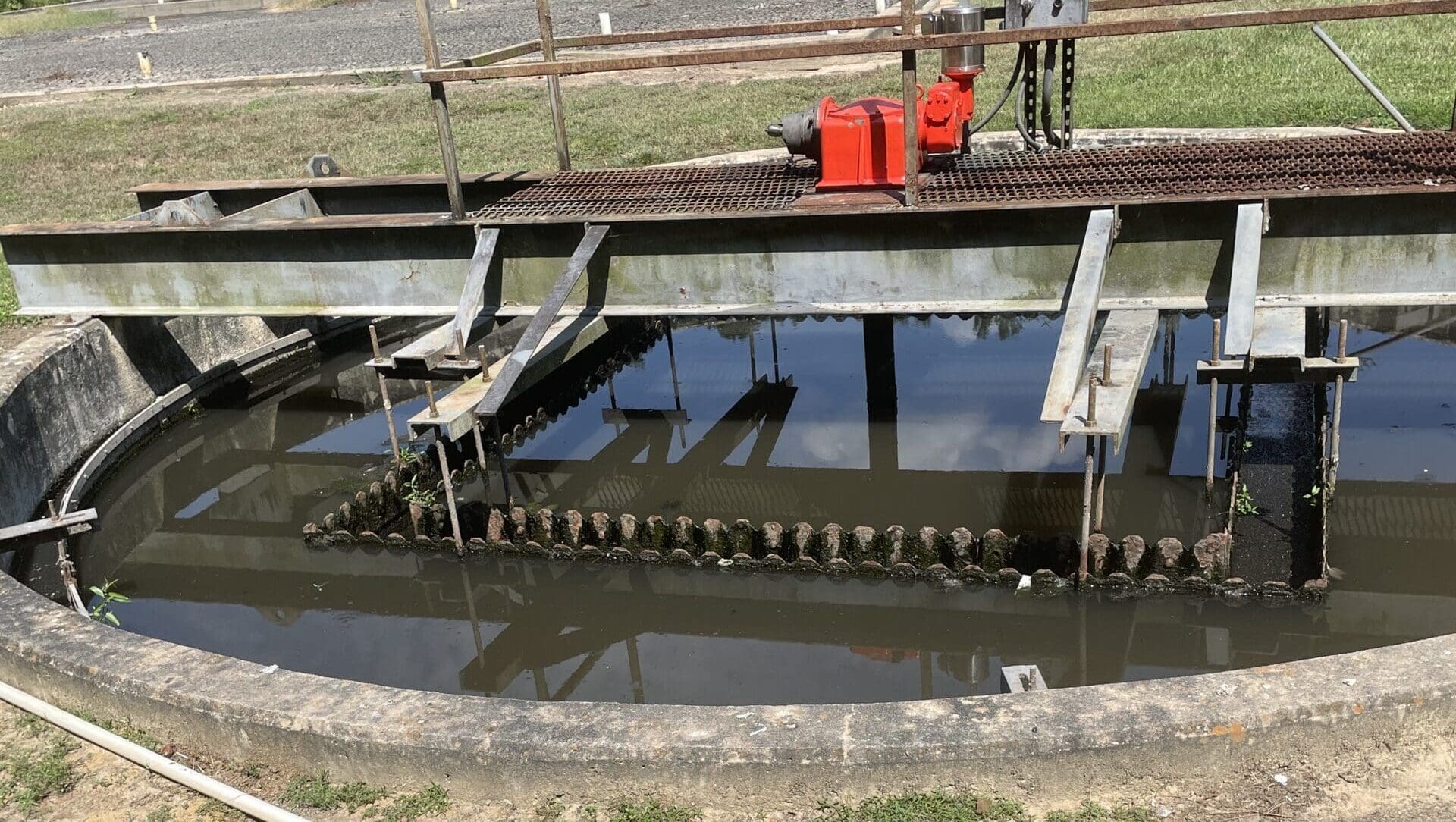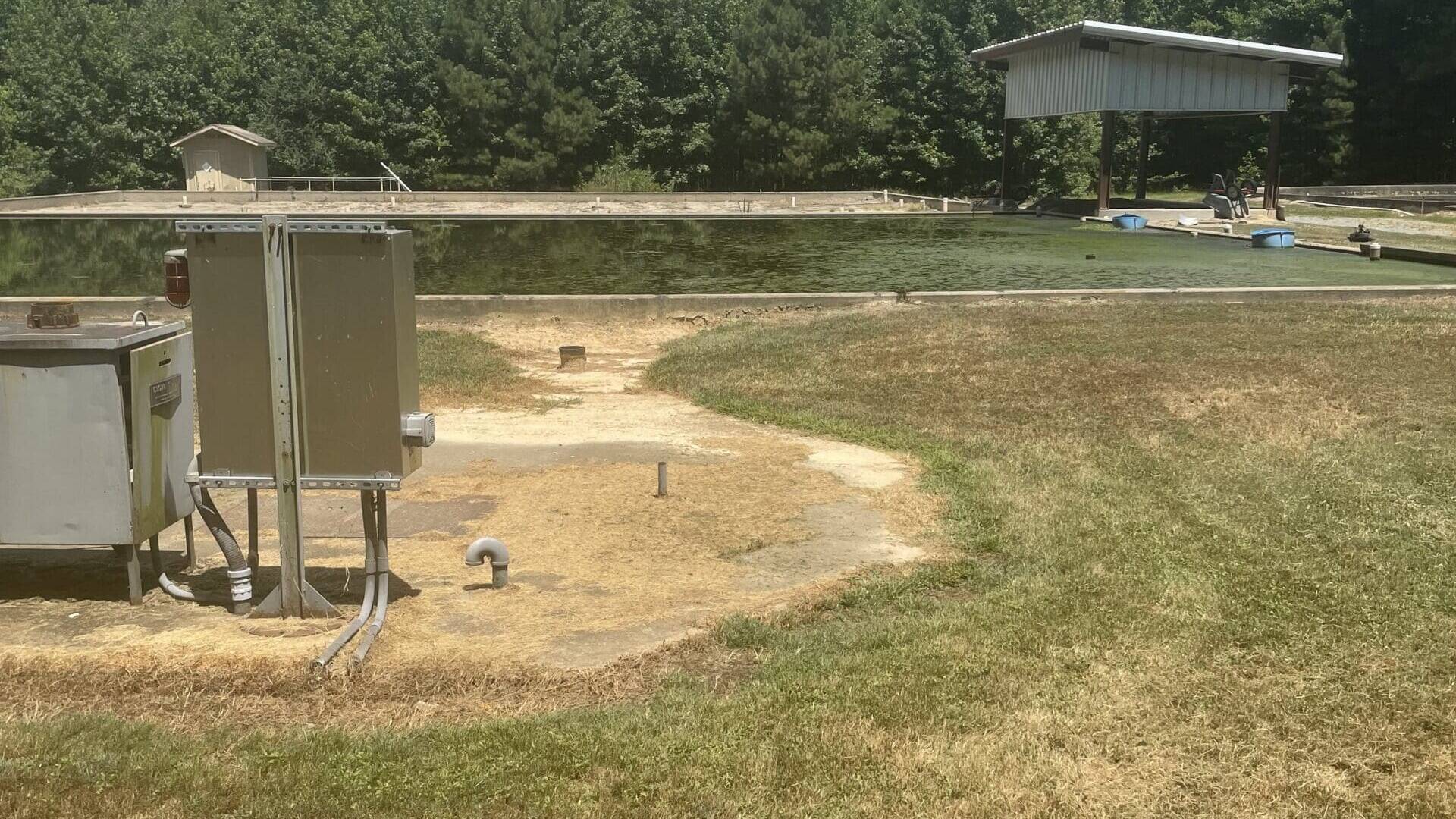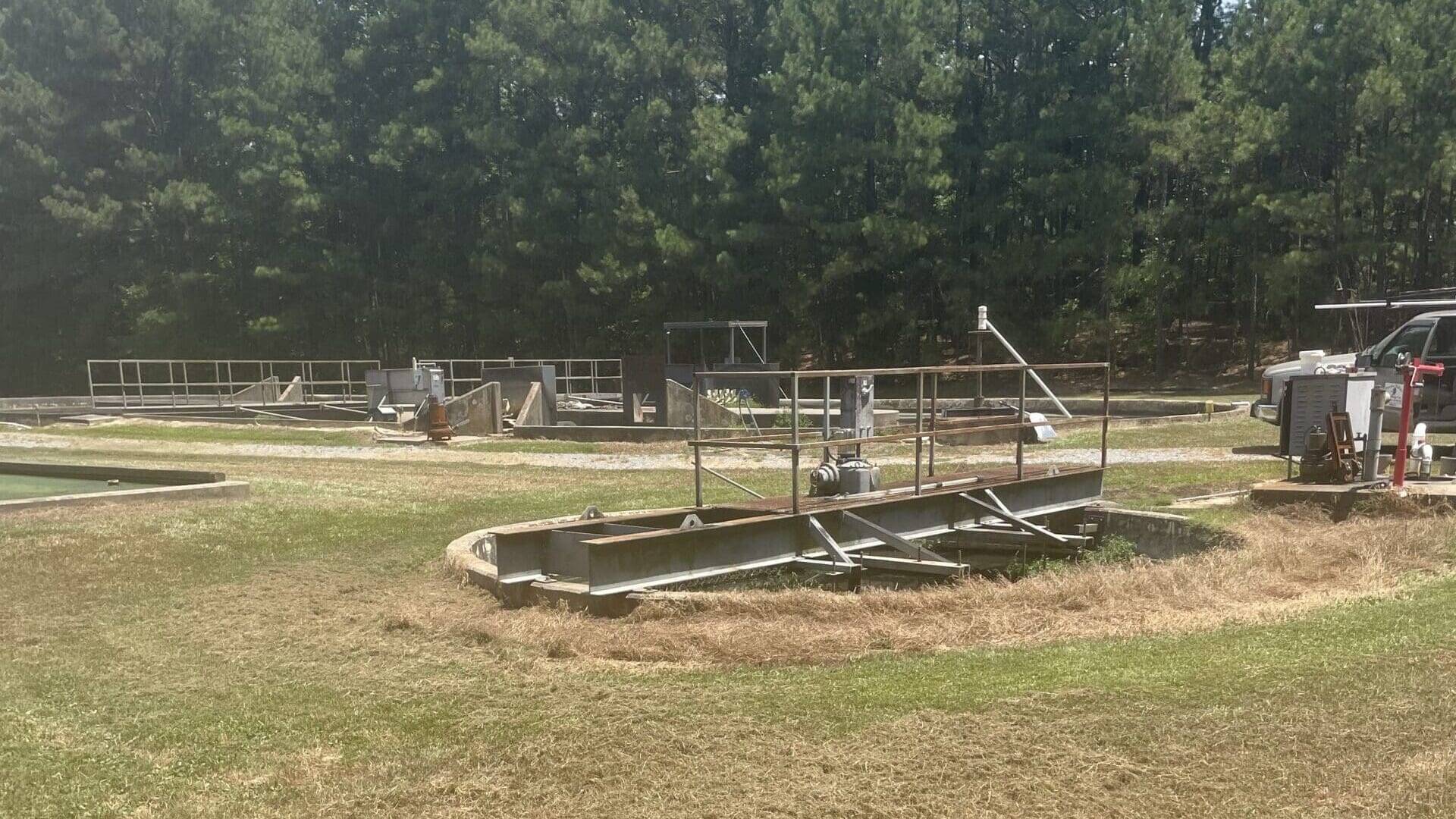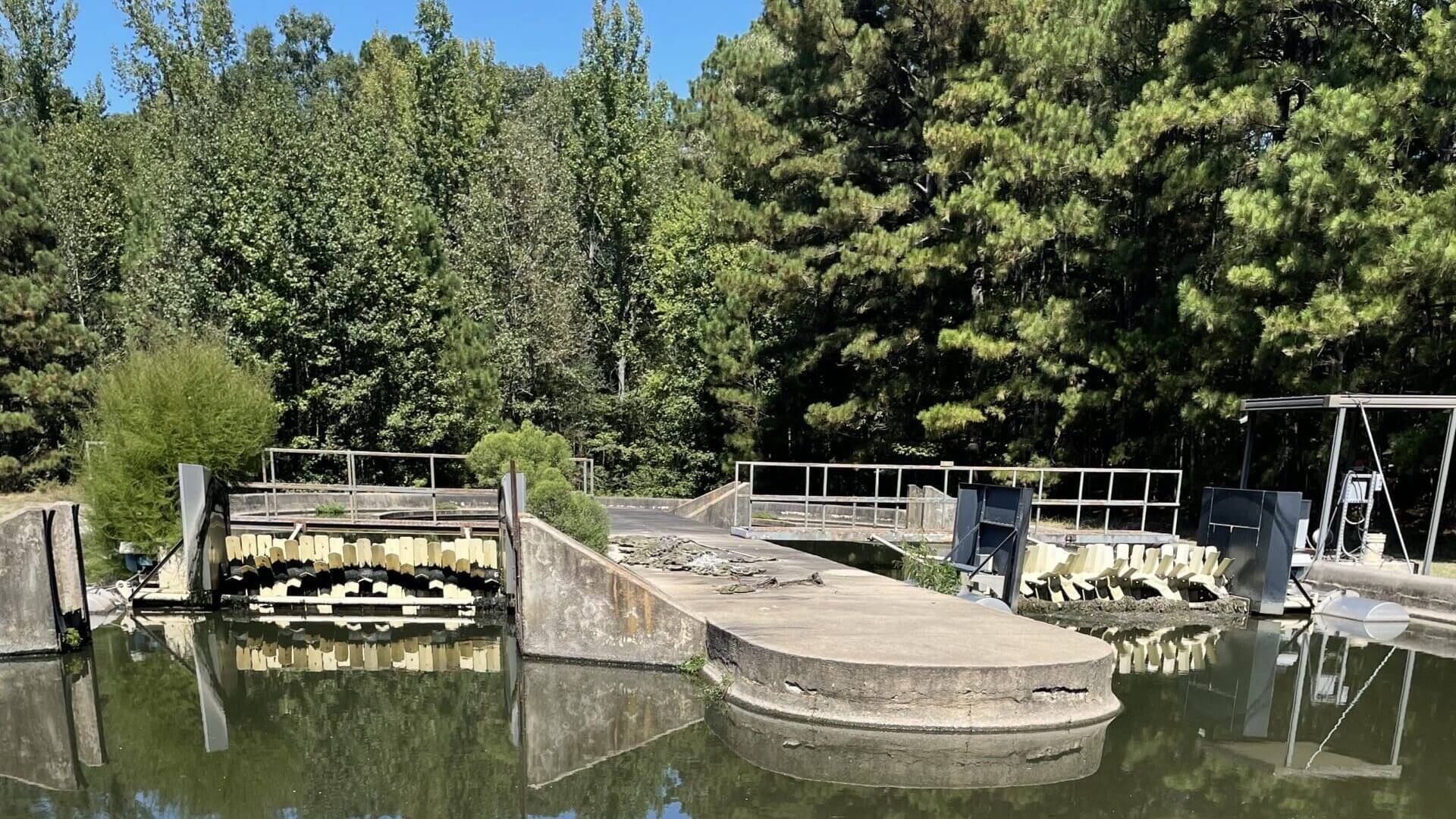Hensley, Arkansas, es una comunidad no incorporada en la parte central del Estado Natural, aproximadamente a 18 millas al sur de Little Rock. El Distrito de Alcantarillado y Mejoras de Maple Creek Farms, una subdivisión parcelada del sureste del condado de Saline situada dentro de Hensley, se ha enfrentado a su parte de retos en el mantenimiento de su infraestructura de aguas residuales. Creado a principios de la década de 1980, el distrito se desarrolló para dar servicio a una zona en la que muchas propiedades eran lo bastante grandes para sistemas de fosas sépticas, pero no todos los terrenos eran adecuados para tales instalaciones. Hoy, de las 400 viviendas unifamiliares y las 20 unidades multifamiliares de la subdivisión, sólo 220 están conectadas al sistema de alcantarillado.
A pesar de tener una planta de tratamiento que funciona sólo a la mitad de su capacidad diseñada, el mantenimiento del sistema ha sido una lucha persistente. El distrito, que funciona con los ingresos procedentes de los impuestos sobre la propiedad del condado de Saline, se enfrentó a un déficit financiero en 2024, tras completar una rehabilitación crítica de la estación de bombeo y elevación. Este proyecto era necesario después de que, en agosto de 2023, se produjera una avería importante en una bomba, que corría el riesgo de paralizar todo el sistema de tratamiento de aguas residuales.

La avería de la bomba puso al descubierto problemas profundamente arraigados en el sistema. Años de acumulación de lodo se habían acumulado en el pozo, alcanzando niveles peligrosos y provocando la avería de equipos vitales. El distrito retiró dos metros y medio de lodo y descubrió que los raíles de sujeción de la bomba estaban rotos y doblados sin posibilidad de reparación. Sin financiación inmediata disponible, la Granja Maple Creek se enfrentó a una crisis. El proceso de reparación exigía comprar una bomba nueva con características mejoradas, diseñada para expulsar de nuevo el lodo, prolongando su longevidad. Además, para evitar futuros fallos, el distrito invirtió en una segunda bomba que sirviera de reserva y redujera la carga de trabajo general del sistema. El distrito también incurrió en gastos de alquiler de una bomba provisional y de cobertura de los gastos de combustible durante la reparación.
Como el distrito se enfrentaba a crecientes tensiones financieras, el presidente de la Junta, John Hern, buscó instituciones crediticias dispuestas a ayudar con un préstamo para infraestructuras. Los bancos tradicionales rechazaron sus solicitudes, ya que los sistemas de alcantarillado no ofrecen el tipo de garantía que suelen exigir los prestamistas.

“No estábamos hipotecando una casa: nuestra única garantía era un sistema de alcantarillado ya endeudado, que los bancos no veían como una buena inversión”, dijo Hern. “Hice la llamada a (CU), y así empezó todo”.
En marzo de 2024, CU concedió un préstamo para infraestructuras de 50.000 $ a Maple Creek Farms, lo que permitió al distrito reponer su financiación operativa tras gastar sus reservas en las reparaciones de la estación de bombeo. La ayuda les permitió mantener la planta de alcantarillado en funcionamiento dentro de las normas gubernamentales, reduciendo el riesgo de nuevos vertidos de aguas residuales en las propiedades y arroyos cercanos.
“El préstamo marcó la diferencia entre mantener el sistema en funcionamiento y enfrentarse a la quiebra, o algo peor”, dijo Hern.

El Departamento de Calidad Medioambiental de Arkansas (ADEQ ) sometió el sistema a una Orden de Consentimiento Administrativo, que exigía nuevas mejoras. El distrito necesitaba reparar la caja de engranajes de su clarificador y sustituir los medios de filtración. Mientras que los medios de filtración podían esperar hasta finales de 2025, la reparación de la caja de engranajes era urgente. Un contratista presupuestó la reparación en 29.900 $, y el distrito aportó 9.900 $ de sus fondos. CU concedió un segundo préstamo de infraestructura de 20.000 $ para cubrir el coste restante, asegurando que el sistema siguiera en el buen camino hacia la conformidad.
"Lo mejor es tener un recurso como vosotros, alguien a quien podemos pedir ayuda sin tener que lidiar con la burocracia de una agencia estatal. Trabajamos con vosotros en lo que era un préstamo relativamente pequeño, pero cuando tratas con otras agencias, ni siquiera quieren hablar contigo a menos que necesites millones de dólares."
Con la ayuda de la CU, Maple Creek Farms está haciendo progresos constantes para cumplir los requisitos estatales y estabilizar su situación financiera. El distrito está trabajando en una subida de tarifas con el Equipo de Infraestructuras Comunitarias de la CU para garantizar la sostenibilidad a largo plazo y ha contratado a una empresa de ingeniería para orientar futuras mejoras.

“El segundo préstamo para infraestructuras llegó en un momento crucial, permitiéndonos mantener las cosas en marcha mientras trabajamos para cumplir la normativa estatal”, dijo Hern. “Nuestro objetivo es evitar que el departamento de sanidad y la ADEQ se nos echen encima. Agradezco todo lo que han hecho por nosotros”.
La capacidad de CU para intervenir rápidamente en favor de pequeñas comunidades como Maple Creek Farms pone de relieve la importancia de las Instituciones Financieras de Desarrollo Comunitario (IFDC). A diferencia de los prestamistas tradicionales, CU se centra en llenar el vacío dejado por los bancos, que a menudo rechazan a los prestatarios por falta de garantías o insuficiente potencial de beneficios. El programa de préstamos para infraestructuras de agua y aguas residuales de las CDFI de CU es el mayor del país, con un tiempo de respuesta de 2-3 días laborables para las crisis de infraestructuras de emergencia, en comparación con el proceso de meses que requieren otros organismos.
Para Maple Creek Farms, la rápida y selectiva ayuda financiera de la CU ha supuesto la diferencia entre la crisis y el progreso. Con las mejoras en curso, el distrito está en vías de garantizar que su infraestructura de aguas residuales siga siendo fiable durante décadas.

